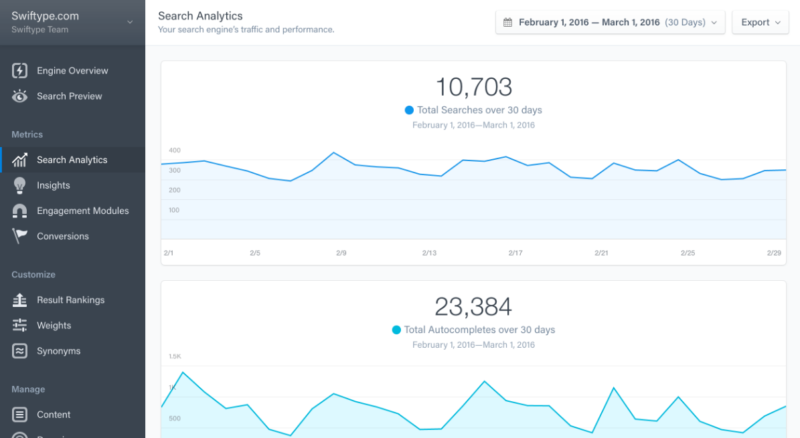Google site search is on the way out. Now what?
With Google sunsetting its site search product, many companies are wondering where to turn for this functionality; columnist Paul Shapiro provides some alternatives.
Spring has sprung, and Google has started off the season with some spring cleaning of its service lineup. They’ve recently announced that Google Site Search is on the way out. Come April 1, 2017, Google will discontinue sales and new renewals of the service, and a year later, April 1, 2018, the service will be completely shut down.
So, what’s the big deal? Search is search, right? The short answer: no. The longer answer is a little more complex, but still easy enough to understand from an end user’s point of view. While not everyone utilizes website search features, those who do are looking for something specific and expect to find answers quickly and easily. If people are on your website and using the search feature, they are obviously interested in what you have to say or in what you’re selling, so catering to them is important. If your search function is weak, users may leave your site, meaning you’re losing a fan, a lead and a customer — and in 2017, that is simply unacceptable.
Google Site Search was an easy-to-implement, safe bet that provided Google-level search within your website. Website owners knew what they were getting, and users felt comfortable using the feature. Now what?
Before you start scrambling to find a suitable replacement, let’s talk a bit about what led us to this point and where you can feasibly go from here. What are current customers losing, and what other options are available for website search functions? Trust us, it’s not as bad as it seems.
What are Google Site Search customers losing?
Let’s talk a bit about what Google Site Search (GSS) accomplished before going into viable alternatives.
Google Site Search was essentially Google for your personal website. With some tweaking and the use of XML, you could have all of the power of Google, with none of the Google branding or traditional ads normally associated with Google, all integrated into your website. Ease of implementation has been one of the great features of GSS; with just a couple of lines of code, websites had the power of Google in their search bar.
GSS also included options for multilingual searches and date biasing, meaning the most relevant results were always at the top. That being said, GSS used Google’s same crawling feature, meaning that updates to your website weren’t always updated in search right away, but instead could take several days.
Google Custom Search
If you’re dead-set on staying with Google, options are still available, but those options may not suit your needs, depending on the size and scope of your business. With Google Custom Search, your customers can search from a group of websites of your choosing or search the entire web, at the great cost of free.
With that free price tag come some stipulations, however. For one, ads are required, unless you are a non-profit or a school, but you can connect your AdSense account to monetize the ads. Also, the Google branding is required; nothing you can do about it. There are also monthly search query limits, so if you’re running a high-traffic website, there’s a good chance your Google Custom Search will stop working due to hitting search limits.
Simply put, Google Custom Search is a great solution for small blogs, and maybe even local businesses, but if you’re already scaling on a large level — or plan on advertising at state, country or global level — Google Custom Search will not fit all of your needs. If you fall into this group, you need to start looking at third-party solutions for search.
Here’s an overview of the differences you can expect between Google Site Search and the free Custom Search:
Third-party solutions
You’re not limited to Google when it comes to search services for your website. A lot of companies care about SEO, but the key is also finding ones that understand that the user experience also has to be top-notch if you want to keep people using your search features and, in turn, your website.
That’s where third-party solutions like Algolia, Cludo and Swiftype come into play. All three of these companies do a great job of maximizing the search experience for your website’s visitors. Check out more details about each (as well as other solutions) below.
AddSearch: Finland-based startup AddSearch is one option for your website search needs. Offering easy installation and mobile support, your search will be up and running in no time and working smoothly on any device. AddSearch also offers search statistics and result control, allowing webmasters to choose and prioritize which results are most important.
Algolia: A well-funded SaaS search company that is already working with major names like Medium, Product Hunt, Twitch and Birchbox, Algolia can integrate into almost any website to offer seamless, fast search. With keystroke forgiveness, find-as-you-type live search and geolocation options, your users will be able to find exactly what they’re looking for, regardless of device or location.
Algolia realizes that the shutdown of Google Site Search will leave many users feeling helpless, “For website owners, GSS was a jack-of-all-trades solution, notoriously easy to set up and as powerful as you’d expect a Google search product to be. From website crawling to the actual search UI, everything was handled automatically — all you needed was a small snippet of code. GSS will be dearly missed, if only for the fact that no technical skills were required to go live with a powerful search,” says Sylvain Utard, of Algolia.
With developer-friendly API choices and multiple CMS platform integrations, Algolia will be right at home on your website, regardless of your platform, but will almost certainly require a developer to help integrate the service. The results are fantastic, however, and your custom search will provide users unparalleled search results. This is thanks in part to Algolia’s advanced navigation and search refinement that allows you to set up an Amazon-like refinement sidebar.
Amazon CloudSearch: One of the more robust services available, CloudSearch is going to be one of the more difficult ones to set up on your website, with on-site searches requiring you to set up a crawler. Basically, you’re going to want to a developer to set up this service for you. With more options than Google, ACS charges based on use, with smaller plans running around $50 per year.
Apache Solr: Another option available for search, Solr is an open-source enterprise platform built on Apache Lucene. Solr is scalable to fit any high-traffic website, with distributed indexing and load-balanced querying, Solr is the trusted search provider for a number of large businesses, including Sears, eHarmony and BestBuy. Solr features comprehensive administration features, easy-to-understand analytics and advanced full-text search options.
Cludo: Another search company available to almost anyone, Cludo wants you to know that you have nothing to worry about if you’re migrating from Google Site Search to a third-party solution. “We do most of the work on our side so that you receive a personalized search solution that fits your needs. We will design the search in accordance to your site’s style, and make sure that relevancy is tuned just for your organization. All you have to do is to copy and paste a few scripts and your fully functional search will be up and running,” states Cludo’s most recent blog post.
Cludo helps add relevance to your search results by including automatic spell-checking into user searches that check against spelling errors, common synonyms, alternate spelling and word derivatives. Cludo also includes analytic reports to give you better insights into what your users are searching for and how they are searching. Information included in the report includes most-used keywords, trending search results and “no results.” Having information on “no result” searches lets you know what your users are searching for and what content you can look into including in the future.
Swiftype: Another option to consider when looking for search for your website is Swiftype. Swiftype is trusted by many websites, including CBS, AOL and AT&T. When comparing GSS with Google Custom Search, Swiftype writes on their blog, “There are much fewer customization options with Google CSE — not just visually, but more importantly in the ability to control the way your content is displayed. While you can tweak little things like link colors, there isn’t much you can customize beyond that. The overall experience still looks and feels like Google, not your own.”
Offering many of the things the other two examples advertise, including the ability to make their search platform look like your own and analytics, Swiftype uses an advanced search algorithm based on language modeling intelligence that takes into account factors like bigram matching and stemming. Bigram matching deals with spacing (things like highheels vs high heels) and hyphenation that might sometimes bring back bad results on less advanced search services. Stemming removes suffixes from words, so that search root words match each other.
Faceted search through Swiftype gives users even more control over their searches on your website by allowing them to refine different search attributes. Things like date, price, location, content type and author can all be used to tweak searches. There is also the option available to search by “Last Updated,” meaning your users are always getting the most up-to-date results.
Conclusion
It’s honestly pretty surprising to see the shuttering of Google Site Search, and there are sure to be quite a few websites out there scrambling to find a new search provider, but if the examples above are any indication, there are plenty of viable options for website owners to choose from; it’s simply a matter of deciding which one works best for you.
If you are insistent on staying with a Google product, Google Custom Search is available for use, free of charge, but does not offer the customization that many websites need. If more control over your search platform is needed, however, there are multiple third-party options available, including Algolia, Cludo and Swiftype. While all offer similar features, they do have unique features that may suit your website better than the others. The key is to do your research, understand what your visitors need from your search functions, and choose your service appropriately.
Contributing authors are invited to create content for Search Engine Land and are chosen for their expertise and contribution to the search community. Our contributors work under the oversight of the editorial staff and contributions are checked for quality and relevance to our readers. The opinions they express are their own.
Related stories
New on Search Engine Land





